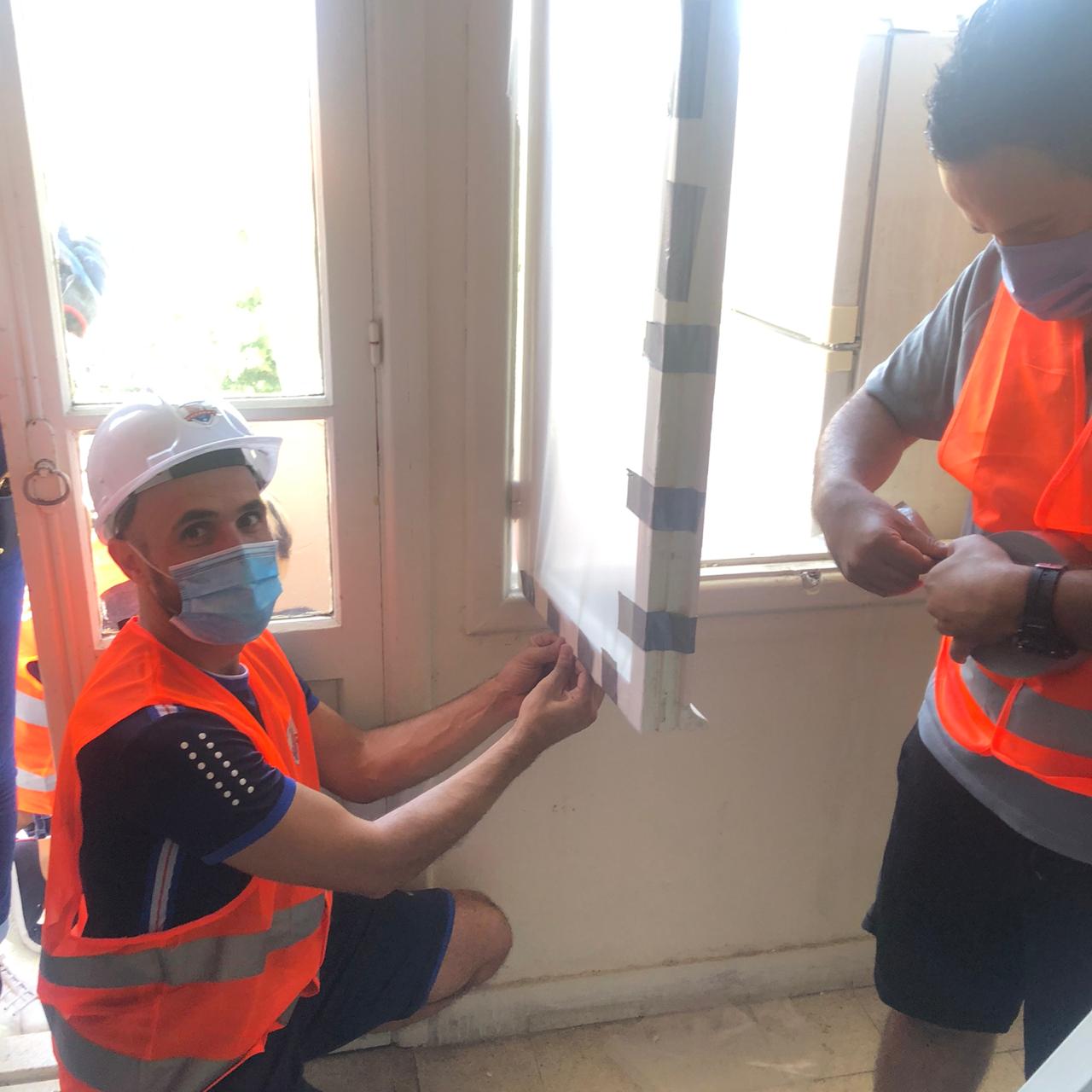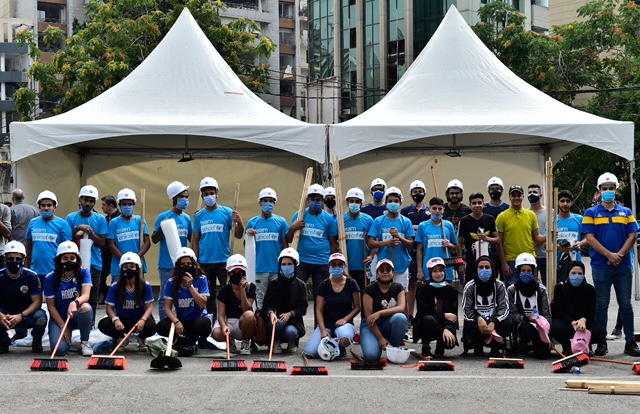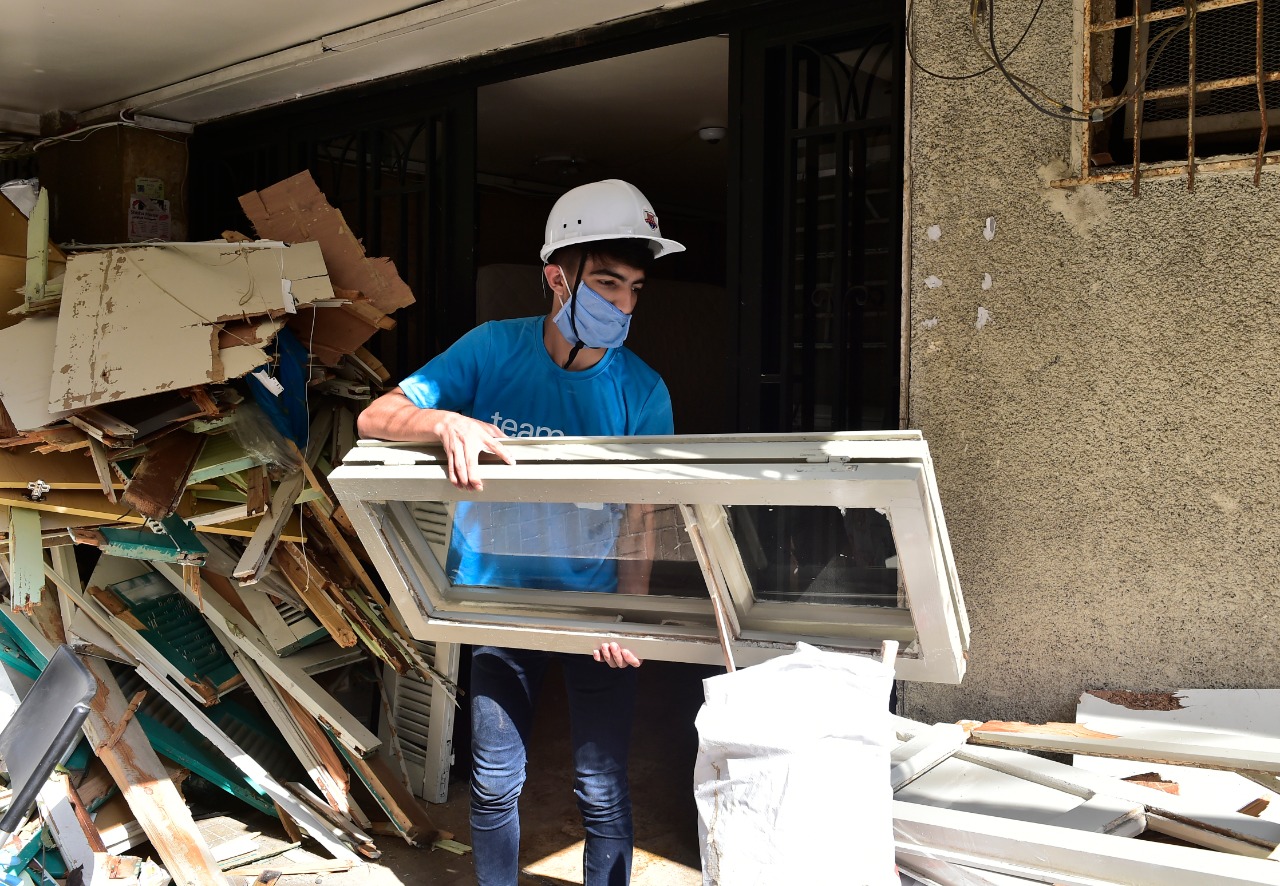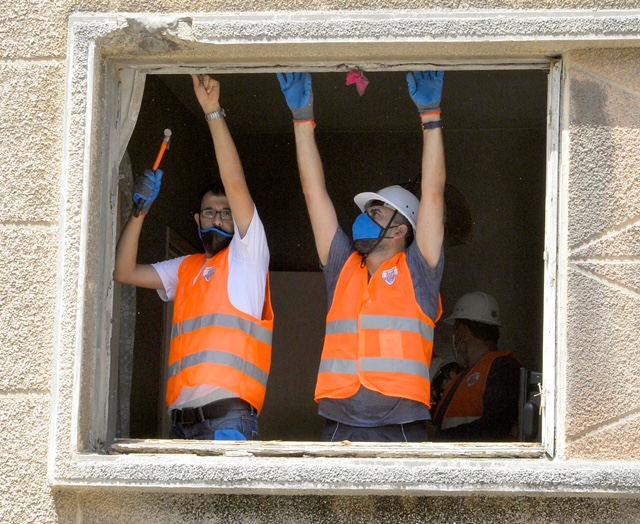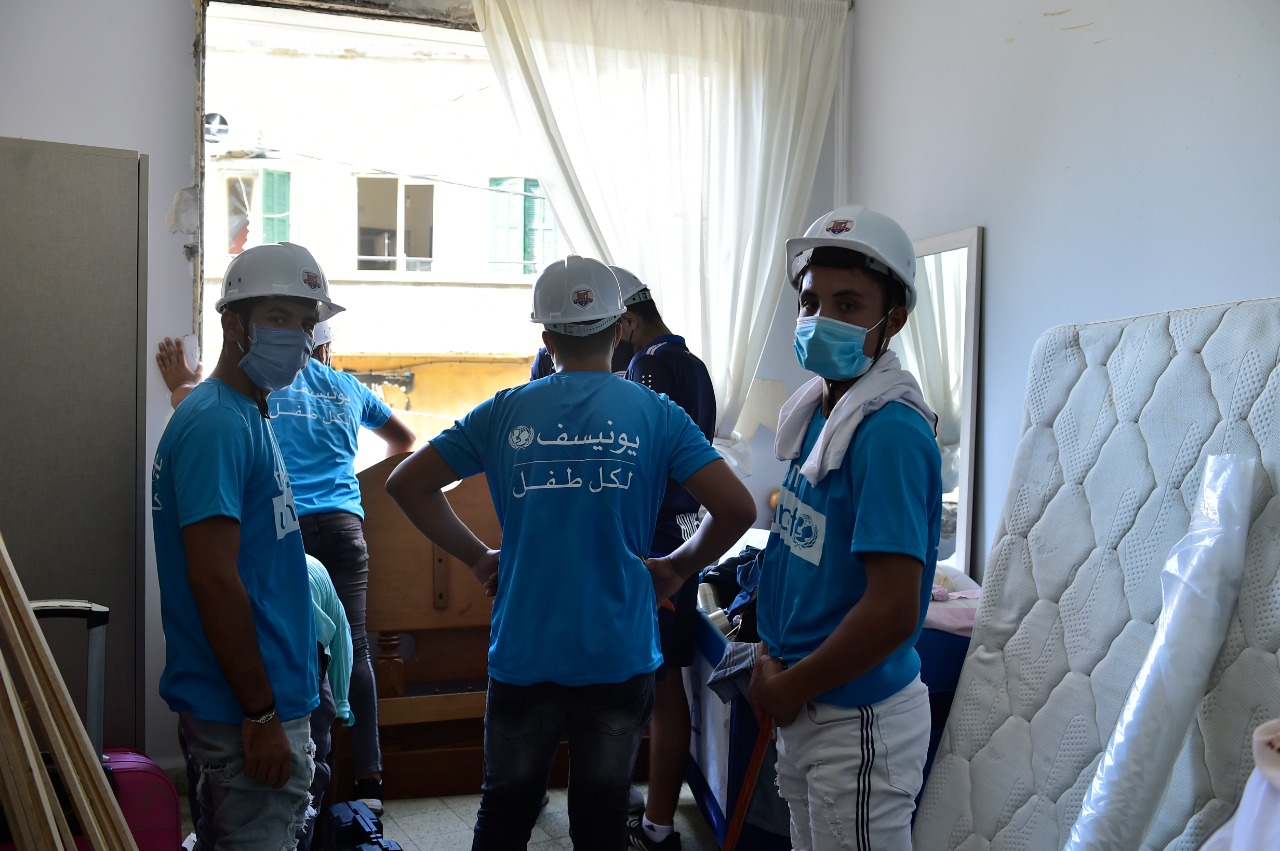August 4th, 2020 changed the face of Beirut. It saw the lives of many suddenly destroyed. 300,000 left homeless, 6,000 injured, more than 200 dead, and an entire city transformed beyond recognition. The tragic explosion left an impact on everyone in the capital and on Lebanon, a country already suffering from economic and political collapse.
Hoops, through its coaches and 50 volunteers, launched initiatives to serve the affected community, including:
Psychosocial support: Emotional and social support is being provided for free. Private sessions and open discussion groups for youths are ongoing in damaged areas of the capital.
Sports for Development (SFD) sessions: Hoops coaches are providing ongoing psychosocial support through sports. These tailored sports activities are designed for stress relief and to support youths in the areas of Beirut's worst hit. 3 teams already gave SFD sessions to traumatized youths in UNICEF’s tents in the Karantina, Basta, and Geitawi areas. More than 100 youths benefitted and to ensure safety during the pandemic, groups were capped at 15 with attention to social distancing and other measures.
On-the-ground assistance: Hoops launched initiatives focused on areas most damaged by the August 4 explosion. It helped families living in damaged homes and the hard-hit medical sector all while enhancing youths’ sense of civic responsibility and empowering them to play a role in relief efforts.
- Homes: Hoops created 4 teams with 12 youth volunteers, engaging them in covering the broken windows and doors of 60 houses with nylon. This interim step provides some safety and protection for residents until the windows and doors can be fixed.
- Hospitals: A team of 6 Hoops coaches and 4 youth volunteers helped clean and cover the doors and windows of Wardiyeh Hospital. This interim step protects the hospital from further damage and environmental elements until proper repairs are made.
- Streets: Hoops cleaned 7 streets with 4 teams of 4 coaches and more than 70 youth volunteers.
- Necessities: Hoops rapidly mobilized and distributed facemasks, water, and food parcels to people whose lives were impacted by the blast.




